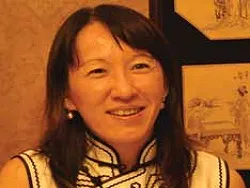
NTU steps up with a new MBA curriculum
The take up of MBA programmes has dropped as more people hold on to their jobs than spend more in MBAs. Find out why it makes sense to pursue Nanyang Business School’s new MBA programme amid the economic downturn.
Take up of MBA programmes globally has dropped as more people hold on to their jobs than invest in upgrading their management skill sets. Find out how Nanyang Business School shines amidst an economic downturn.
According to Associate Professor Chung Lai Hong, Associate Dean (MBA) at the Nanyang Business School, it used to be that people would grab the opportunity to enroll in an MBA programme during a downturn, hoping to re-enter the workforce with an advanced degree when the economy picks up. But in the last couple of years, this has not happened. Potential applicants are considering a lot more things before taking a year or two off to pursue an MBA.
“We were hoping that there would be more applications, but in fact the number of applications has remained largely constant. During this latest economic downturn, people have held on to their jobs rather than take the opportunity to get an MBA because of prolonged uncertainties about when the economy will recover. At the same time, the number of MBA programmes offered globally has gone up, giving more choices to MBA seekers. This has increased the intensity of competition for everyone,” she said.
As competition rises with more MBA programmes available globally, the Nanyang Business School keeps its edge over other schools with a more comprehensive curriculum, ensuring a holistic leadership training for prospective students.
Stepping up
NTU’s Nanyang Business School launched a new Master of Business Administration (MBA) curriculum this year to address the needs of the industry today. Starting August 2013, students will experience a 12-month programme that is more strongly focused on leadership, deeper industry application, and with emphasis on corporate governance and sustainability in Asia. Chung revealed that 3 issues spurred the launch at this time.
First, with rapid changes occurring in the industry, issues arose about the educators’ role as well as the competencies learnt in finance and other MBA modules. Second, companies are subject to increasing scrutiny by the public demanding proper governance. “And third, Asia’s preeminence in the past few years is steadily rising. So MBA participants come to Asia to learn about business practices here,” she said.
According to Nick Soriano, Director of Marketing & Admissions for The Nanyang MBA, the new curriculum will prepare students to be more capable in the new global business environment. “Our new MBA programme addresses these three issues – challenging and rapidly changing environment, rise of Asia and corporate governance and sustainability, - simultaneously,” he added.
Standing out
So what sets this new programme apart from the old curriculum and that of other MBAs? Chung noted that one component of the new curriculum is to address the changing concept of leadership by making it compulsory for students to go through a leadership development module focusing on skills needed to lead multi-cultural teams.
The new programme will help students understand leadership practices and business models across Asia, as they will be required to solve management dilemmas presented in cases, network with experienced practitioners at industry talks, and complete projects, including a 20-hour module on corporate governance and ethics.
Holding up
As the flagship programme of the Nanyang Business School, the Nanyang MBA has been ranked among the world’s top 35 MBA programmes for the past four years by the Financial Times, and has been rated Singapore’s best MBA programme by The Economist since 2004.
As Chung puts it, the key mission of the business school is to produce leaders for a sustainable world. “If you want a programme that helps you become a leader today, and that prepares you to manage challenges in corporate Asia, come to us.”
“I have no doubt that other schools will also make changes to their programmes, but ours is ready to meet your needs today,” she concluded.



![SBR 5 Lorem Ipsum News 2 [8 May]](https://cmg-qa.s3.ap-southeast-1.amazonaws.com/s3fs-public/styles/exclusive_featured_article/public/2025-05/a_hand_pointing_to_a_futuristic_technology_5b87c9d0e3_3.png.webp?itok=M3Hf-9XR)
![SBR 4 Lorem Ipsum [8 May Top Stories]](https://cmg-qa.s3.ap-southeast-1.amazonaws.com/s3fs-public/styles/exclusive_featured_article/public/2025-05/a_hand_pointing_to_a_futuristic_technology_5b87c9d0e3_2.png.webp?itok=2m5Wl0MX)


![Exclusive three SBR 12 Lorem Ipsum [8 May]](https://cmg-qa.s3.ap-southeast-1.amazonaws.com/s3fs-public/styles/exclusive_featured_article/public/2025-05/a_hand_pointing_to_a_futuristic_technology_5b87c9d0e3_11.png.webp?itok=8kn_UIfA)
![SBR 3 Lorem Ipsum [ Exclusive 2]](https://cmg-qa.s3.ap-southeast-1.amazonaws.com/s3fs-public/styles/exclusive_featured_article/public/2025-05/a_hand_pointing_to_a_futuristic_technology_5b87c9d0e3_1.png.webp?itok=YCyjLegJ)
![SBR 2 Lorem Ipsum [8 May]](https://cmg-qa.s3.ap-southeast-1.amazonaws.com/s3fs-public/styles/exclusive_featured_article/public/2025-05/a_hand_pointing_to_a_futuristic_technology_5b87c9d0e3_0.png.webp?itok=_cKD-29o)

![Video [Event News]](https://cmg-qa.s3.ap-southeast-1.amazonaws.com/s3fs-public/styles/event_news_featured_article/public/2025-05/screenshot-2025-05-08-at-4.58.53-pm_0.png.webp?itok=Kud35sMs)
![Event News SBR 9 Lorem Ipsum [8 may]](https://cmg-qa.s3.ap-southeast-1.amazonaws.com/s3fs-public/styles/event_news_thumbnail/public/2025-05/a_hand_pointing_to_a_futuristic_technology_5b87c9d0e3_8.png.webp?itok=DTh_dbYp)
![Event News SBR 9 Lorem Ipsum [8 May]](https://cmg-qa.s3.ap-southeast-1.amazonaws.com/s3fs-public/styles/event_news_thumbnail/public/2025-05/a_hand_pointing_to_a_futuristic_technology_5b87c9d0e3_7.png.webp?itok=vzDAzb6V)
![Event News SBR 8 Lorem Ipsum [8 May]](https://cmg-qa.s3.ap-southeast-1.amazonaws.com/s3fs-public/styles/event_news_thumbnail/public/2025-05/a_hand_pointing_to_a_futuristic_technology_5b87c9d0e3_6.png.webp?itok=jvHFc4P6)
![Video [Event News]](https://cmg-qa.s3.ap-southeast-1.amazonaws.com/s3fs-public/styles/video_thumbnail/public/2025-05/screenshot-2025-05-08-at-4.58.53-pm_0.png.webp?itok=yZnI0YBb)
![Video 1 SBR [8 May]](https://cmg-qa.s3.ap-southeast-1.amazonaws.com/s3fs-public/styles/video_thumbnail/public/2025-05/screenshot-2025-05-08-at-4.58.53-pm.png.webp?itok=9AAeRz_k)

 Advertise
Advertise

